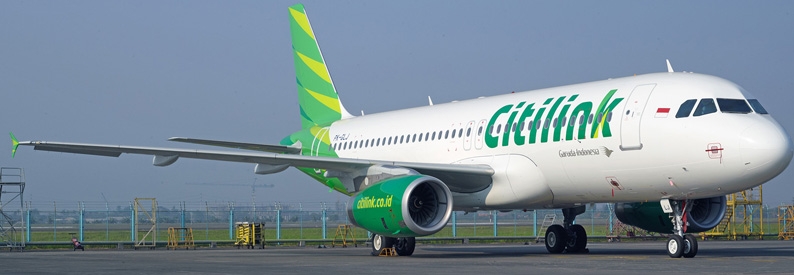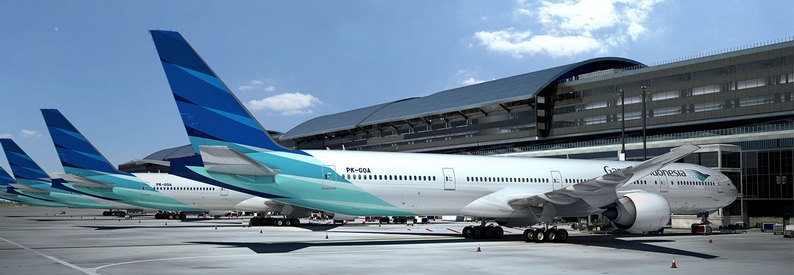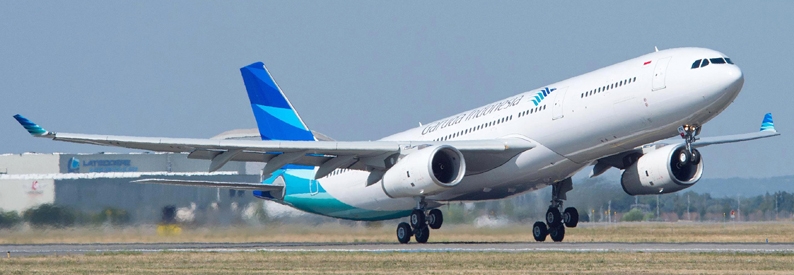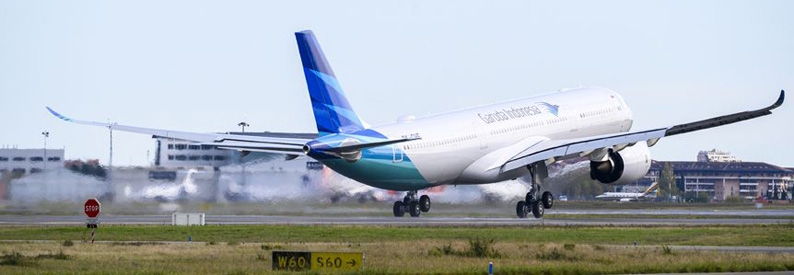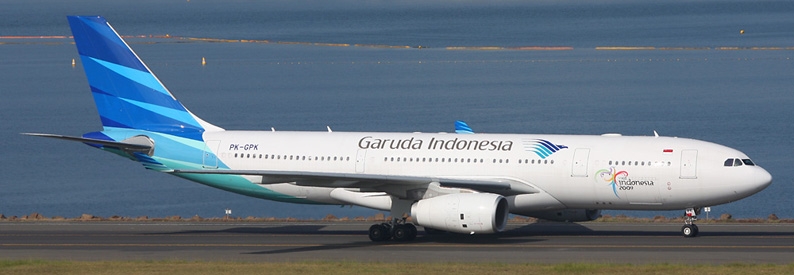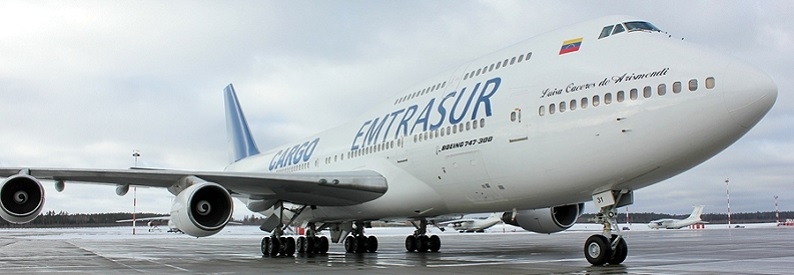Garuda Indonesia (GA, Jakarta Soekarno-Hatta) will attempt to suspend debt repayments in order to try to avoid bankruptcy, the country’s deputy minister for state-owned enterprises, Kartika Wirjoatmodjo, has told a parliamentary hearing. It has also delayed an interest payment for its USD498.88 million sukuk.
“It must rush to start a moratorium on payments in the near future. Because without a moratorium, the cash will run out in a very short time,” he said according to the local business newspaper Investor Daily.
The government has appointed legal and financial consultants for the process, he said at the June 3 hearing.
The beleaguered flag carrier’s non-consolidated debt has ballooned to IDR70 trillion rupiah (USD4.9 billion), which makes the company virtually insolvent, Wirjoatmodjo admitted. Losing USD100 million a month, “Garuda cannot be considered a going concern because it will not be able to pay its debts.”
Talks are ongoing between management, minority shareholders, and the ministries of state-owned enterprises and finance on ways to reduce the debt pile to between USD1 billion and USD1.5 billion, he said.
According to the financial data firm FactSet, the airline has USD298 million worth of long-term and short-term debt maturing this year. As of September 2020, it held USD169.9 million in cash and cash equivalents.
At the start of June 2020, creditors gave Garuda Indonesia approval for a three-year extension on the sukuk. Now it has exercised the right to a 14-day grace period to delay a coupon payment that was due on June 3, it revealed in a stock exchange filing.
Last year’s government rescue package, in which when the finance ministry agreed to buy seven-year convertible bonds with a maximum amount of IDR8.5 trillion (USD595 million), had come to little, Wirjoatmodjo said. Only IDR1 trillion (USD70 million) has been disbursed because Garuda has failed to meet performance indicators set as conditions for the funding.
Garuda was in trouble well before the Covid-19 pandemic, its main problems being “leases that exceeded a reasonable cost” and “there are too many types of aircraft” and “many routes are flown that are not profitable,” the deputy minister recounted.
Garuda Indonesia is now considering cutting its Airbus A330 orders (four A330-800Ns and nine A330-900Ns are due for delivery, the ch-aviation fleets module shows) and reducing the number of widebodies in its fleet, anonymous sources told Bloomberg.
It has been negotiating with lessors about returning some of its A330s and is considering halving the number of its B777-300(ER)s, the sources claimed. It currently operates ten of the B777s, with seven A330-200s, seventeen A330-300s, and three A330-900Ns completing its widebody fleet.
Meanwhile, Garuda Indonesia CEO Irfan Setiaputra revealed on June 3 that because of concerns about Covid-19 and “the current restructuring conditions” the airline was likely to cancel its lucrative Hajj pilgrimage flights to Saudi Arabia for the second year in a row.
Also on June 3, SOEs minister Erick Thohir proposed during a ministry meeting that the number of airports in Indonesia that serve as international gateways be reduced in order to funnel traffic through select airports in order to maximise the revenue potential for local carriers. He said he had spoken with the minister of transport on how not all airports in Indonesia can have “open skies”, he said according to Bisnis Indonesia.
The arrival of foreign tourists would be concentrated in just a few locations and they would use local carriers if they wanted to go on to other destinations in the country. Naming the United States and China as other countries that use this technique, he added: “With the pandemic still happening, this is an opportunity to synchronise.”

